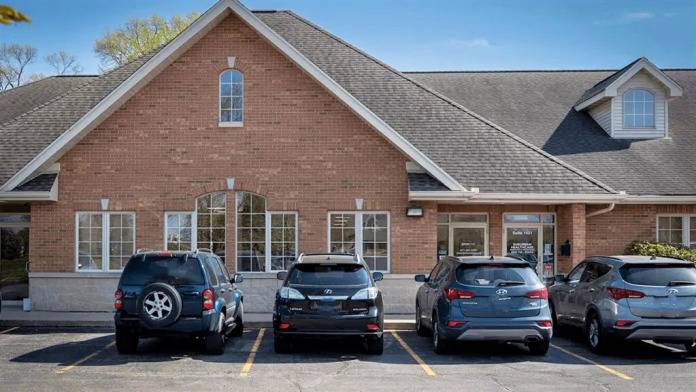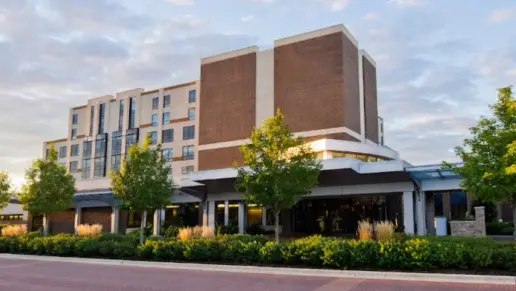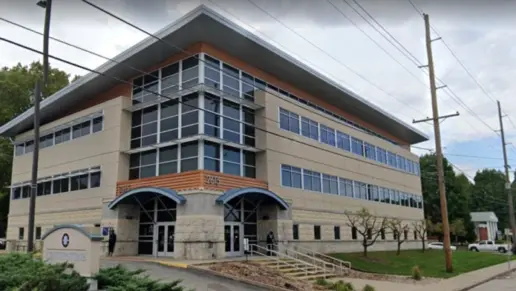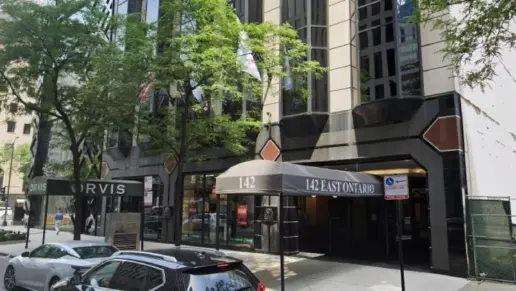About Gateway Foundation
Specialty rehab programs at Gateway Foundation include tailored care focusing on women's specific needs and experiences and gender-specific addiction treatment addressing unique challenges faced by men.
For recreation, patients can unwind in the rec room after a lengthy day of therapy and use the meditation room to promote mindfulness during recovery.
Gateway Foundation has received accreditations from The Joint Commission.
Latest Reviews
Rehab Score
Gallery

Location
Accepted Insurance
Other Forms of Payment
Private insurance refers to any kind of healthcare coverage that isn't from the state or federal government. This includes individual and family plans offered by an employer or purchased from the Insurance Marketplace. Every plan will have different requirements and out of pocket costs so be sure to get the full details before you start treatment.
Self-pay involves paying for treatment out of your own pocket. You can use savings or credit, get a personal loan, or receive help from family and friends to fund your treatment. If you don't have insurance or your insurance plan doesn't cover a specific program, self-pay can help ensure you still get the care you need.
Financial aid can take many forms. Centers may have grants or scholarships available to clients who meet eligibility requirements. Programs that receive SAMHSA grants may have financial aid available for those who need treatment as well. Grants and scholarships can help you pai for treatment without having to repay.
Medicaid is a state based program that helps lower-income individuals and families pay for healthcare. Medicaid covers addiction treatment so those enrolled can use their coverage to pay for rehab. When a program accepts Medicaid the client often pays very little or nothing out of their own pocket.
Addiction Treatments
Levels of Care
Treatments
The goal of treatment for alcoholism is abstinence. Those with poor social support, poor motivation, or psychiatric disorders tend to relapse within a few years of treatment. For these people, success is measured by longer periods of abstinence, reduced use of alcohol, better health, and improved social functioning. Recovery and Maintenance are usually based on 12 step programs and AA meetings.
Drug rehab in Illinois is designed to help people recover from addiction to a number of substances. The length of each program and its intensity tend to vary, and the plan of care is based on your individual needs.
Dual Diagnosis simply refers to two or more disorders or illnesses occurring in the same person. Among those with substance abuse problems, the most common co-occurring mental health problems include depression, anxiety and trauma-related issues. Gateway is a recognized leader among behavioral health care providers in offering substance abuse treatment, as well as treatment for individuals that are diagnosed with a co-occurring disorder. Gateway treats dual diagnosis through comprehensive drug rehab programs that use proven, or "evidence-based" approaches and best practices.
Opioid rehabs specialize in supporting those recovering from opioid addiction. They treat those suffering from addiction to illegal opioids like heroin, as well as prescription drugs like oxycodone. These centers typically combine both physical as well as mental and emotional support to help stop addiction. Physical support often includes medical detox and subsequent medical support (including medication), and mental support includes in-depth therapy to address the underlying causes of addiction.
Substance rehabs focus on helping individuals recover from substance abuse, including alcohol and drug addiction (both illegal and prescription drugs). They often include the opportunity to engage in both individual as well as group therapy.
Programs


Clinical Services
Research clearly demonstrates that recovery is far more successful and sustainable when loved ones like family members participate in rehab and substance abuse treatment. Genetic factors may be at play when it comes to drug and alcohol addiction, as well as mental health issues. Family dynamics often play a critical role in addiction triggers, and if properly educated, family members can be a strong source of support when it comes to rehabilitation. Gateway recognizes the immediate and long-term benefits to individuals in recovery when their families are involved in drug rehab, and engages families in counseling and substance abuse education programs. Their Family Programs are designed to answer the questions families have and to help parents, spouses, siblings and significant others learn how to better cope with the substance abuse issues of loved ones in treatment.
Group therapy is any therapeutic work that happens in a group (not one-on-one). There are a number of different group therapy modalities, including support groups, experiential therapy, psycho-education, and more. Group therapy involves treatment as well as processing interaction between group members.
In individual therapy, a patient meets one-on-one with a trained psychologist or counselor. Therapy is a pivotal part of effective substance abuse treatment, as it often covers root causes of addiction, including challenges faced by the patient in their social, family, and work/school life.
Motivational Interviewing has strong scientific support for being a highly effective therapy for those with a substance abuse problem. Instead of trying to convince an individual of the benefits of stopping substance abuse, Gateway Alcohol & Drug Treatment's professional counselors help each person weigh the pros of this behavior against the cons while in drug rehab. Counselors assist individuals in exploring their core values and deeply held goals. These values and goals are usually inconsistent with continued substance abuse, so they become the guiding force toward behaving in a way that is consistent with positive, healthy living.
If you or someone you care about has experienced or witnessed a life-threatening event and is abusing alcohol or drugs to ease painful memories, trauma may be the primary driver of substance abuse. Rather than avoiding the issue, Gateway Treatment Centers can help individuals work through traumatic events and instill in them a sense of resilience with our personalized approach. Through integrated treatment, trauma victims may simultaneously addresses addiction and mental health concerns with trauma-specific treatment approaches to meet individual needs.
Amenities
-
Private Setting
Accreditations

The Joint Commission, formerly known as JCAHO, is a nonprofit organization that accredits rehab organizations and programs. Founded in 1951, the Joint Commision's mission is to improve the quality of patient care and demonstrating the quality of patient care.
Joint Commission Accreditation: Yes
Contact Information
1419 Essington Road
Joliet, IL 60435










